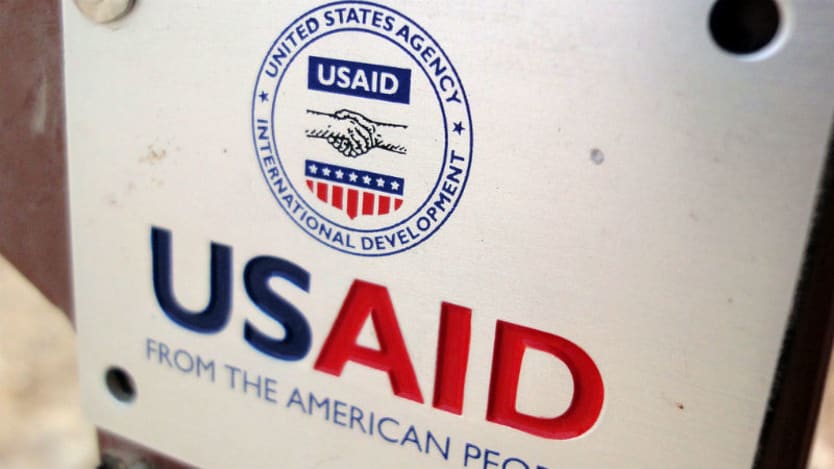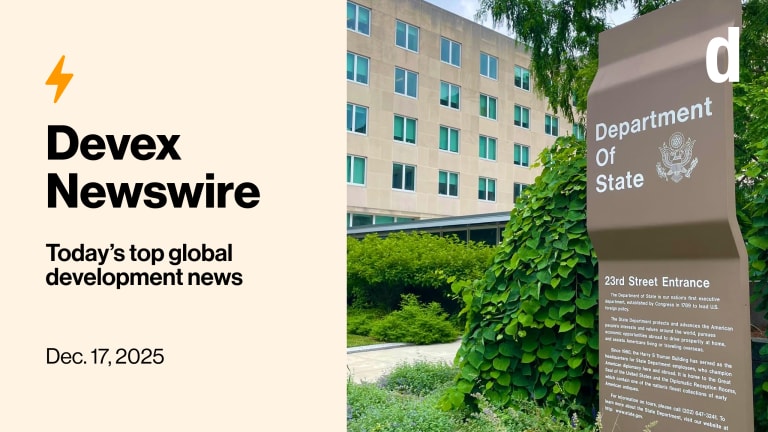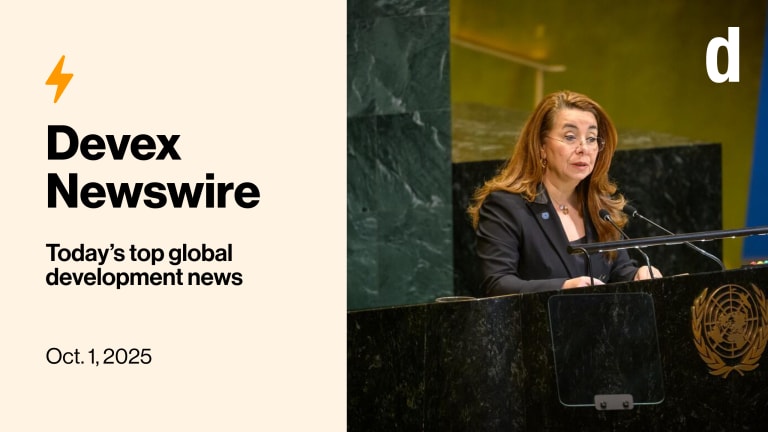
WASHINGTON — U.S. Agency for International Development Administrator Mark Green on Monday sent a general notice to staff informing them that Secretary of State Rex Tillerson’s hiring freeze has come to an end and that USAID will now handle its own hiring decisions.
In a letter to Green, Deputy Secretary of State John Sullivan instructed that, “while the Secretary appreciates your desire to align on hiring decisions, moving forward USAID should initiate its own hiring processes to accommodate the Agency's staffing needs."
A USAID official wrote to Devex on background that the agency now plans to open slots for qualified candidates for the Foreign Service in high-priority categories, which could include lawyers, contracting officers, health experts, and executive officers. The agency will also move forward with hiring for a number of civil service positions that a USAID review board approved during the past three months.
The directive means that USAID will no longer have to submit hiring requests to the State Department for approval. The agency will now have the discretion to manage its own hiring process.
USAID’s Hiring and Reassignment Review Board — the panel that was created last July to hear hiring requests from USAID bureaus and prioritize essential positions during the hiring freeze — will remain in place to provide strategic hiring management at the agency, Green wrote to staff.
“This corporate view ensures we remain within our funding levels; support our Redesign efforts; and recruit, retain and deploy the talent we need to fulfill the Administration's vision for 21st century diplomacy and development,” he wrote.
In October Devex reported that dozens of USAID foreign service candidates, many of whom had reached the final stages of the months-long application process, were abruptly informed that the positions they had applied for no longer existed. After those reports prompted criticism from lawmakers, USAID allowed those candidates to remain on the agency’s active roster, instead of having to start the application process all over again.
Before he retired at the end of February, Devex spoke to Wade Warren, the former assistant to the administrator who also chaired USAID’s hiring board.
“We have found that the bureaus police themselves. They don't submit every vacancy that they have. They're already judicious about what they ask the board permission to do, which positions they ask the board permission to fill, and then the board takes it very seriously,” Warren said. He estimated that the HRRB had denied roughly one-third of the bureaus’ hiring requests.
USAID had anticipated that the hiring freeze would be lifted, and the agency planned to continue with its own internal review process when that happened.
“When the hiring freeze is lifted, we don't want everybody just to hire back all the vacancies that they have. We want to be strategic about it and hire for priority positions. The administrator has already made it clear that when the hiring freeze is lifted, we will still be asking bureaus to justify the positions,” Warren told Devex.
Adva Saldinger contributed reporting.








